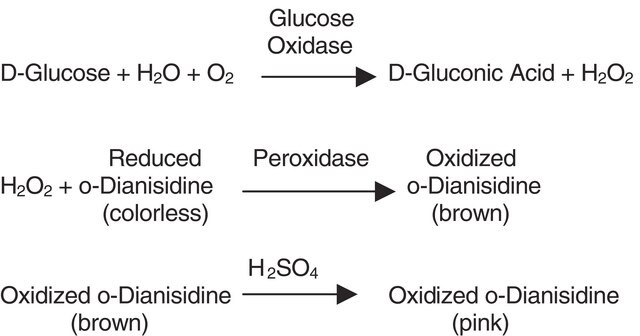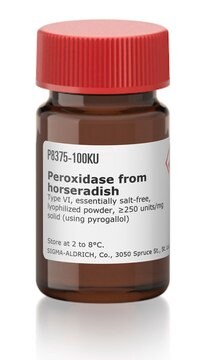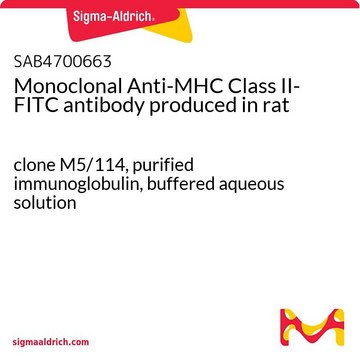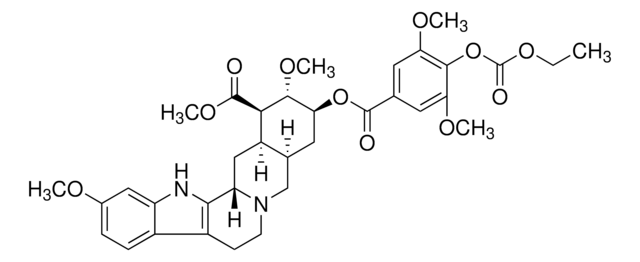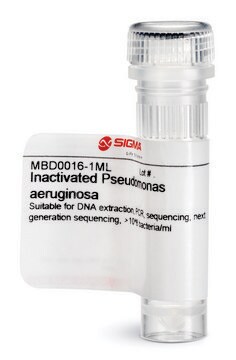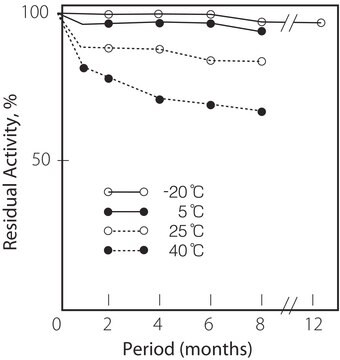L9795
Lactate Oxidase from Aerococcus viridans
lyophilized powder
Synonym(s):
L-lactate monooxygenase, lactate monooxygenase, lactate oxidative decarboxylase, lactate oxygenase, lactic oxidase, lactic oxygenase
About This Item
Recommended Products
biological source
bacterial (Aerococcus viridans)
Quality Level
form
lyophilized powder
mol wt
80 kDa (gel filtration)
storage temp.
−20°C
General description
Application
- supplement in the culture medium to convert extracellular lactate to pyruvate
- coating on glass beads for electrochemical detection of lactate from a single cell by a push-pull nozzle system
- coating on multi-branched gold nanoparticles (GNPs) for the simultaneous colorimetric detection of lactate in saliva by paper-based multiplexed device
Biochem/physiol Actions
Unit Definition
Signal Word
Danger
Hazard Statements
Precautionary Statements
Hazard Classifications
Eye Irrit. 2 - Resp. Sens. 1 - Skin Irrit. 2 - STOT SE 3
Target Organs
Respiratory system
Storage Class Code
11 - Combustible Solids
WGK
WGK 3
Flash Point(F)
Not applicable
Flash Point(C)
Not applicable
Regulatory Listings
Regulatory Listings are mainly provided for chemical products. Only limited information can be provided here for non-chemical products. No entry means none of the components are listed. It is the user’s obligation to ensure the safe and legal use of the product.
JAN Code
L9795-BULK:
L9795-100UN:
L9795-500UN:
L9795-VAR:
L9795-50UN:
Choose from one of the most recent versions:
Certificates of Analysis (COA)
Don't see the Right Version?
If you require a particular version, you can look up a specific certificate by the Lot or Batch number.
Already Own This Product?
Find documentation for the products that you have recently purchased in the Document Library.
Customers Also Viewed
Articles
Professor Rivnay (Northwestern University, USA) discusses using organic mixed conductors as an alternative to efficiently bridge the ionic world of biology with contemporary microelectronics.
Our team of scientists has experience in all areas of research including Life Science, Material Science, Chemical Synthesis, Chromatography, Analytical and many others.
Contact Technical Service

